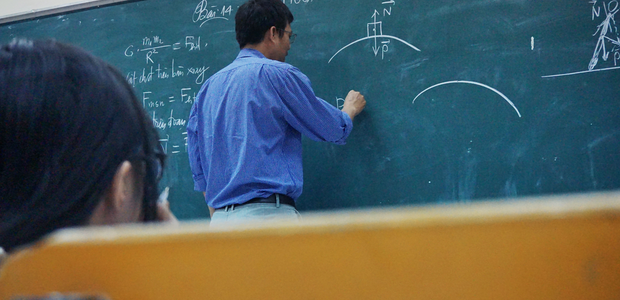
 WIDER Seminar Series
WIDER Seminar Series
Gabriel Zucman presents at the WIDER Seminar Series on 5 September 2024.
In the second half of the 2010s more than 100 countries—including all large offshore financial centers—started to automatically exchange bank information with foreign tax authorities. This informational big-bang marks a break with the situation of offshore bank secrecy that prevailed before. We study its effects on tax compliance by analyzing the universe of information reports sent by foreign banks to Danish authorities, matched to population-wide micro-data on income, wealth, and cross-border bank transfers.
In response to the automatic exchange of bank information, tax evaders may repatriate previously undeclared offshore wealth, they may start to self-report offshore income to the tax authorities, or the tax authorities may detect their evasion in audits that use the new information reports. Using a variety of research designs, we find large compliance effects along all these margins, with the largest response coming from repatriation of wealth. Overall we estimate that the automatic exchange of bank information has closed about 70% of the offshore tax gap. These results highlight the power of international cooperation to improve tax compliance: tax evasion is not a law of nature in a globalized world.
| 11:00–11:45 | Seminar by Gabriel Zucman |
| 11:45–12:00 | Discussant response |
| 12:00–12:30 | Q&A |
| 12:30–13:30 | Lunch |
Gabriel Zucman, born in Paris in 1986, is professor of economics at the Paris School of Economics and Ecole normale supérieure – PSL, associate professor of economics at the University of California, Berkeley, and founding director of the EU Tax Observatory.
He is the author of articles published in journals such as the Quarterly Journal of Economics, the American Economic Review, the Review of Economic Studies, and of two books. His research focuses on the accumulation, distribution, and taxation of global wealth and has renewed the analysis of the macroeconomic and distributional implications of globalization.
In a series of papers and in his book The Hidden Wealth of Nations, he has developed methods to measure the wealth held in tax havens. This research finds that about 8% of the world’s household financial wealth is held in tax havens, with large variation across countries—from a few percent in Scandinavia to 50% in Russia. Data leaked from offshore financial institutions (such as the Panama Papers) suggest that offshore wealth is highly concentrated and frequently evades taxation.
A second strand of research combines theory and empirics to quantify the redistributive effects of international tax competition. The results suggest that close to 40% of multinational corporate profits are shifted to tax havens globally and more than 50% for US multinationals. This profit shifting has redistributive implications across countries and social groups. Granular results of this research, available at MissingProfits.world, make it possible to assess alternative forms of taxation of multinational companies, such as minimum taxes and the use of apportionment formulas.
With the members of the World Inequality Lab, he has developed prototype distributional national accounts, statistics that decompose macroeconomic growth by social group annually and in real time. With Emmanuel Saez, he has constructed series on the distribution of US wealth and with Thomas Piketty he has studied inequality in China, Russia, and the accumulation of capital in rich countries back to 1700. The results are available on the World Inequality Database and on RealTimeInequality.org for the United States.
Another area of research analyzes the economic effects of wealth taxation on capital accumulation, international mobility, inequality, tax avoidance, and tax evasion in France, Denmark, other European countries, and the United States. These studies shed light on current debates about the desirability and practicality of taxing wealth.
The Triumph of Injustice, written with Emmanuel Saez, presents an analysis of the progressivity of the US tax system taking into account all taxes at all levels of government since the creation of the income tax in 1913. The book, supplemented by an open-source tax reform simulator, proposes to reinvent progressive taxation around three pillars: a progressive wealth tax, a new way to tax multinational companies, and a national income tax. It was awarded the Hans Matthöfer Prize and the Colbert Prize.
Gabriel Zucman received his PhD in 2013 from the Paris School of Economics and taught at the London School of Economics before joining the Berkeley faculty in 2015.
He received the John Bates Clark medal of the American Economic Association in 2023. In 2021 he was named an Andrew Carnegie Fellow. He was awarded the Bernacer Prize and a Sloan Research Fellowship in 2019, the Best Young French Economist Prize awarded by Le Monde and le Cercle des Economistes in 2018, and the Excellence Award in Global Economic Affairs from the Kiel Institute for the World Economy in 2017.
The WIDER Seminar Series showcases the latest research on key topics in development economics. It provides a forum for senior and early-career researchers, both in-house and external, to present recent and ongoing work related to UNU-WIDER’s current work programme.
In addition to providing a forum for both academic debate and training, the series presents an opportunity for policymakers and others interested in development to learn about the latest research methods and findings.
The WIDER Seminar Series events take place on Wednesdays. All those interested are invited to register and attend via Zoom or in person.